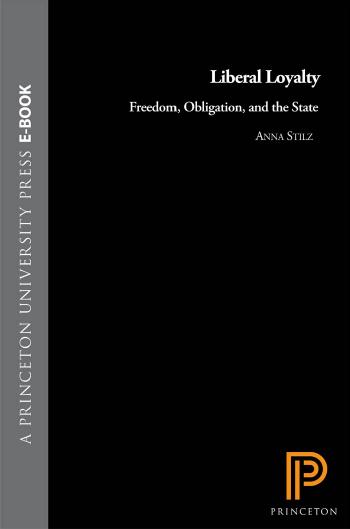Liberal Loyalty by Stilz Anna

Author:Stilz, Anna
Language: eng
Format: epub, pdf
Publisher: Princeton University Press
Published: 2009-03-14T16:00:00+00:00
The Freedom Model
The main argument of Rousseau’s freedom model is that once a citizen is educated to understand the role played by democratic institutions in securing his civil freedom, he will reflectively identify with his political institutions and his compatriots, and show concern for their interests as a matter of course. Rousseau asserts that we possess this capacity for reflective identification because amour propre, or self-regard, gives us the ability to form new attitudes and desires based on our beliefs. If we regard our compatriots as equals and understand that taking account of their interests is necessary to formulate a general will, rightly educated amour propre can lead us to form a new cognitively based identification with them. According to the freedom model, then, an attitude of civic allegiance to our state and to our fellow citizens can be based solely on a public and transparent understanding of their role in defining and securing our rights.
Defending this freedom model, however, requires us to claim that evidence from Emile is relevant for understanding Rousseau’s views on the psychology of citizenship. Are the views put forward in Emile relevant for understanding Rousseau’s ideas about political education? Many commentators have held that they are not.10 What gives their view an initial plausibility is that in Book I of Emile, Rousseau draws an important distinction between the political education advocated by the ancients and the “natural” education that is to be given to Emile. There he says:
Natural man is entirely for himself. He is a numerical unity, the absolute whole which is relative only to itself or its kind. Civil man is only a fractional unity dependent on the denominator; his value is determined by his relation to the whole, which is the social body. Good social institutions are those that best know how to denature man, to take his absolute existence from him in order to give him a relative one and to transport the I into the common unity, with the result that each individual believes himself no longer one but a part of the unity and no longer feels except within the whole. (E, 39)
Rousseau indicates that the best example of such a purely civic education is found in Plato’s Republic. Interestingly, though, Emile is not given a civic education of this kind. Emile is raised for himself, to become independent and autonomous, whereas Plato’s ideal citizen is raised solely to perform a role that contributes to the common good of his society.
But Rousseau ends his discussion of ancient and modern education with an important question. He suggests that these seemingly opposed objects—producing a free and independent man and producing a citizen—may in the end be reconcilable.11 He asks:
What will a man raised uniquely for himself become for others? If perchance, the double object proposed [man and citizen] could be reunited in a single object, one would, in removing the contradictions in man, have removed a large impediment to his happiness. (E, 41)
He suggests that “in order to judge of this,
Download
This site does not store any files on its server. We only index and link to content provided by other sites. Please contact the content providers to delete copyright contents if any and email us, we'll remove relevant links or contents immediately.
| Anarchism | Communism & Socialism |
| Conservatism & Liberalism | Democracy |
| Fascism | Libertarianism |
| Nationalism | Radicalism |
| Utopian |
The Secret History by Donna Tartt(18963)
The Social Justice Warrior Handbook by Lisa De Pasquale(12171)
Thirteen Reasons Why by Jay Asher(8856)
This Is How You Lose Her by Junot Diaz(6843)
Weapons of Math Destruction by Cathy O'Neil(6223)
Zero to One by Peter Thiel(5742)
Beartown by Fredrik Backman(5688)
The Myth of the Strong Leader by Archie Brown(5472)
The Fire Next Time by James Baldwin(5392)
How Democracies Die by Steven Levitsky & Daniel Ziblatt(5181)
Promise Me, Dad by Joe Biden(5118)
Stone's Rules by Roger Stone(5058)
A Higher Loyalty: Truth, Lies, and Leadership by James Comey(4919)
100 Deadly Skills by Clint Emerson(4888)
Rise and Kill First by Ronen Bergman(4743)
Secrecy World by Jake Bernstein(4709)
The David Icke Guide to the Global Conspiracy (and how to end it) by David Icke(4664)
The Farm by Tom Rob Smith(4475)
The Doomsday Machine by Daniel Ellsberg(4461)
